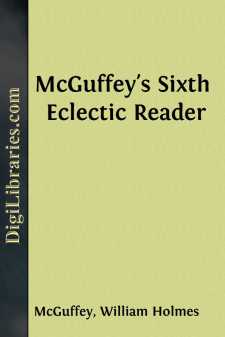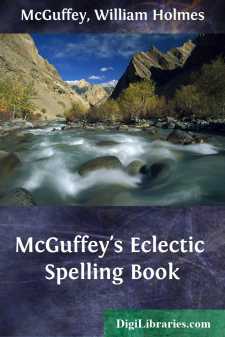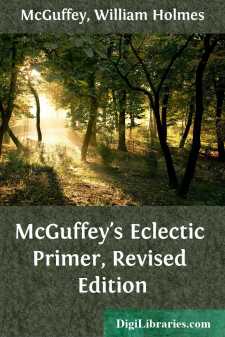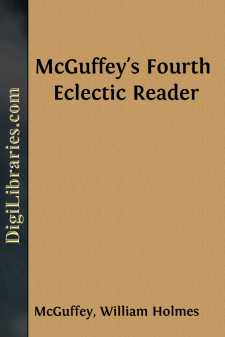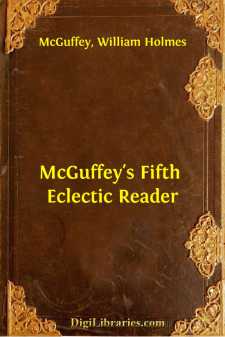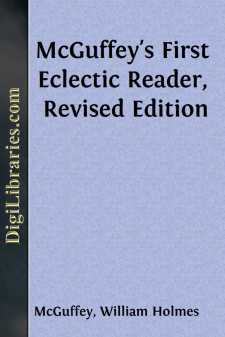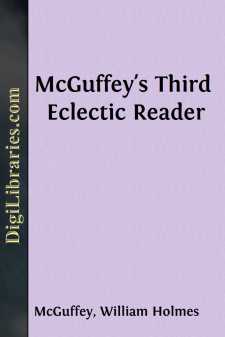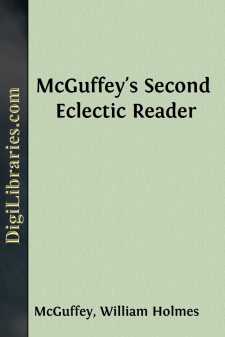Categories
- Antiques & Collectibles 13
- Architecture 36
- Art 48
- Bibles 22
- Biography & Autobiography 813
- Body, Mind & Spirit 142
- Business & Economics 28
- Children's Books 15
- Children's Fiction 12
- Computers 4
- Cooking 94
- Crafts & Hobbies 4
- Drama 346
- Education 46
- Family & Relationships 57
- Fiction 11828
- Games 19
- Gardening 17
- Health & Fitness 34
- History 1377
- House & Home 1
- Humor 147
- Juvenile Fiction 1873
- Juvenile Nonfiction 202
- Language Arts & Disciplines 88
- Law 16
- Literary Collections 686
- Literary Criticism 179
- Mathematics 13
- Medical 41
- Music 40
- Nature 179
- Non-Classifiable 1768
- Performing Arts 7
- Periodicals 1453
- Philosophy 64
- Photography 2
- Poetry 896
- Political Science 203
- Psychology 42
- Reference 154
- Religion 513
- Science 126
- Self-Help 84
- Social Science 81
- Sports & Recreation 34
- Study Aids 3
- Technology & Engineering 59
- Transportation 23
- Travel 463
- True Crime 29
McGuffey's Sixth Eclectic Reader
Categories:
Description:
Excerpt
INTRODUCTION. (11)
The subject of Elocution, so far as it is deemed applicable to a work of this kind, will be considered under the following heads, viz:
1. ARTICULATION. 4. READING VERSE. 2. INFLECTION. 5. THE VOICE. 3. ACCENT AND EMPHASIS. 6. GESTURE.
I. ARTICULATION. (11)
Articulation is the utterance of the elementary sounds of a language, and of their combinations.
As words consist of one or more elementary sounds, the first object of the student should he to acquire the power of uttering those sounds with distinctness, smoothness, and force. This result can be secured only by careful practice, which must be persevered in until the learner has acquired a perfect control of his organs of speech.
An Elementary Sound is a simple, distinct sound made by the organs of speech.
The Elementary Sounds of the English language are divided into Vocals,
Subvocals, and Aspirates.
VOCALS. (12)
Vocals are sounds which consist of pure tone only. They are the most prominent elements of all words, and it is proper that they should first receive attention. A vocal may be represented by one letter, as in the word hat, or by two or more letters, as in heat, beauty. A diphthong is a union of two vocals, commencing with one and ending with the other. It is usually represented by two letters, as in the words oil, boy, out, now.
Each of these can he uttered with great force, so as to give a distinct expression of its sound, although the voice be suddenly suspended, the moment the sound is produced. This is done by putting the lips, teeth, tongue, and palate in their proper position, and then expelling each sound from the throat in the same manner that the syllable "ah!" is uttered in endeavoring to deter a child from something it is about to do; thus, a'—a'—a'—.
Let the pupil he required to utter every one of the elements in the Table with all possible suddenness and percussive force, until he is able to do it with ease and accuracy. This must not he considered as accomplished until he can give each sound with entire clearness, and with all the suddenness of the crack of a rifle. Care must be taken that the vocal alone be heard; there must be no consonantal sound, and no vocal sound other than the one intended.
At first, the elementary sounds may be repeated by the class in concert; then separately.
Long Sounds.
Sound as in
a hate e err a hare i pine a pass o no a far oo cool a fall u tube e eve u burn
Short Sounds.
Sound as in
a mat o hot e met oo book i it u us
Diphthongs. oi, oy, as in oil, boy. ou, ow, as in out, now.
REMARK I.—In this table, the short sounds are nearly or quite the same, in quantity, as the long sounds. The difference consists chiefly in quality. Let the pupil determine this fact by experiment.
REMARK II.—The vocals are often represented by other letters or combinations of letters than those used in the table: for instance, a is represented by ai as in hail, by ea as in steak, etc.
REMARK III.—As a general rule, the long vocals and the diphthongs should be articulated with full, clear utterance; but the short vocals have a sharp, distinct, and almost explosive utterance....


